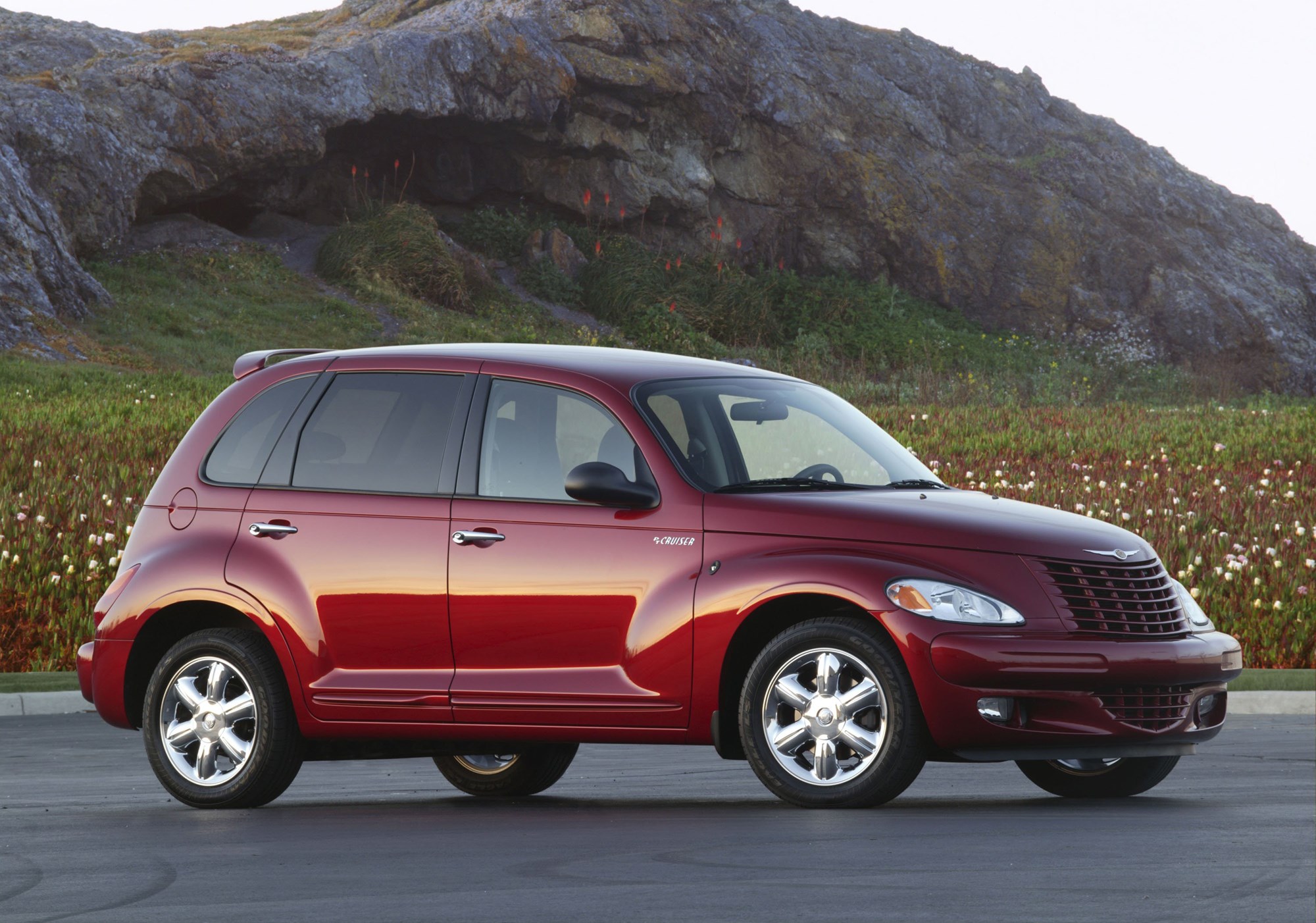Car Brands Pronunciation: A Comprehensive Guide
Car Brands Pronunciation: A Comprehensive Guide cars.truckstrend.com
The roar of an engine, the sleek design, the promise of the open road – cars evoke passion and excitement. But before you even hit the accelerator, there’s a subtle yet significant hurdle many automotive enthusiasts and casual observers face: pronouncing the names correctly. From the sophisticated "Porsche" to the dynamic "Hyundai," car brands hail from diverse linguistic backgrounds, making their names a fascinating, often challenging, tapestry of global sounds. Mastering car brand pronunciation isn’t just about showing off; it’s about respect for heritage, enhancing your credibility, and fostering clearer communication in the vast world of automobiles.
This guide delves deep into the nuances of car brand pronunciation, offering insights, practical tips, and a comprehensive breakdown to help you navigate the linguistic labyrinth of the automotive industry.
Car Brands Pronunciation: A Comprehensive Guide
The Linguistic Labyrinth: Why Pronunciation Matters
The automotive industry is a truly global phenomenon. Car manufacturers are headquartered in countries spanning continents, each with its unique language, phonetic rules, and cultural heritage. When a brand like "Volkswagen" (German for "people’s car") or "Peugeot" (a French family name) gains international recognition, its original pronunciation often clashes with the phonetic conventions of other languages.
This clash is precisely why pronunciation matters. Mispronouncing a brand can range from a minor social faux pas to undermining your perceived expertise. For car enthusiasts, journalists, salespeople, or even just casual conversationalists, uttering a brand name correctly shows a level of attention to detail and respect for the brand’s origins. It’s a subtle nod to the craftsmanship and history embedded in each vehicle, allowing for more precise and confident discussions about cars. Moreover, in an increasingly interconnected world, accurate pronunciation facilitates better cross-cultural communication and appreciation.
Decoding Common Pronunciation Pitfalls
Many car brands become stumbling blocks due to specific linguistic features not common in English. Understanding these common pitfalls is the first step toward mastery.
- Silent Letters and Unique Spellings: Languages like French often feature silent letters at the end of words or unique vowel combinations. For example, the ‘t’ in "Peugeot" is silent, and the ‘eu’ makes an ‘oh’ sound.
- ‘J’ vs. ‘Y’ Sounds: In German, the letter ‘J’ is often pronounced like an English ‘Y’. This is why "Jaguar" is pronounced "Jag-u-ar" in British English but might be mistaken for a ‘J’ sound by those unfamiliar with German phonetics. (Though Jaguar is British, this is a common mix-up related to other languages). More directly, ‘Y’ in Hyundai causes confusion.
- ‘V’ vs. ‘W’ Sounds: German is notorious for swapping these. An English ‘V’ sound is often represented by ‘W’ in German (e.g., "Volkswagen" – ‘V’ sound), while an English ‘W’ sound is often represented by ‘V’ (e.g., "Volkswagen" – the ‘V’ is pronounced like an ‘F’).
- Vowel Sounds: Many European languages have distinct vowel sounds that don’t directly translate to English. The ‘ö’ in "Citroën" or the ‘eu’ in "Porsche" are prime examples.

A Regional Guide to Automotive Sounds
Let’s break down some of the most frequently mispronounced brands by their country of origin, highlighting key phonetic rules.

German Precision
German names often feature hard consonants and specific vowel sounds.
- Audi: (OW-dee) – The ‘Au’ is like ‘ow’ in ‘cow’.
- BMW: (Bee-Em-DUB-lew) – Straightforward, but important to know it’s an acronym.
- Mercedes-Benz: (Mer-SAY-deez Benz) – The ‘c’ is soft, like an ‘s’.
- Porsche: (POR-shuh) – A classic pitfall! It has two syllables, with an ‘uh’ sound at the end. The ‘e’ is not silent.
- Volkswagen: (FOLKS-vah-gun) – The ‘V’ is pronounced like an ‘F’, and the ‘w’ like a ‘v’.

Italian Passion
Italian brands are known for their musicality and often have double consonants.
- Ferrari: (Feh-RAH-ree) – The double ‘r’ is rolled, but a single ‘r’ is acceptable in English.
- Lamborghini: (Lam-bor-GEE-nee) – The ‘gh’ makes a hard ‘g’ sound, as in ‘go’.
- Maserati: (Mah-zeh-RAH-tee) – The ‘s’ is soft, like a ‘z’.
- Alfa Romeo: (AL-fah ROH-mee-oh) – Fairly phonetic, but emphasize the ‘roh’.
French Elegance
French names often feature nasal vowels and silent consonants.
- Peugeot: (Poo-ZHO) – The ‘eu’ makes an ‘oo’ sound, the ‘g’ is soft like ‘zh’ in ‘measure’, and the ‘t’ is silent.
- Renault: (Reh-NOH) – The ‘lt’ is silent, and the ‘eau’ is a long ‘oh’ sound.
- Citroën: (See-TRO-en) – The ‘ë’ indicates the ‘e’ is pronounced separately, like ‘en’ in ‘listen’.
- Bugatti: (Boo-GAH-tee) – Relatively phonetic, but the ‘u’ is a soft ‘oo’.
Japanese Ingenuity
Japanese brand names are generally more phonetic for English speakers, but some nuances exist.
- Subaru: (SOO-bah-roo) – Fairly straightforward.
- Mazda: (MAHZ-duh) – The ‘a’ is short, like in ‘cat’.
- Nissan: (NEE-sahn) – Emphasize the first syllable.
- Toyota: (Toy-OH-tuh) – The ‘o’ is a long ‘oh’ sound.
Korean Dynamics
Often mistaken for Japanese, Korean brands have distinct sounds.
- Hyundai: (HUN-day or HYUN-day) – This is one of the most debated. The most commonly accepted is ‘HUN-day’ in the US, but the Korean pronunciation is closer to ‘Hyun-DAI’ (dai as in ‘die’).
- Kia: (KEE-uh) – The ‘i’ is a long ‘e’ sound.
- Genesis: (JEN-uh-sis) – Standard English pronunciation.
Swedish Simplicity
- Volvo: (VOL-voh) – The ‘o’s are short, like in ‘pot’.
- Saab: (SAHB) – The ‘aa’ is a short ‘a’ sound. (Though production ceased, it’s a historically significant brand).
British Heritage
While English, regional accents and historical pronunciations can cause variations.
- Jaguar: (JAG-wahr in British English, JAG-yoo-ar in American English) – Both are accepted, but the British ‘JAG-wahr’ is often considered the original.
- Land Rover: (LAND ROH-ver) – Straightforward.
- Aston Martin: (AS-tun MAR-tin) – Straightforward.
Mastering the Art: Practical Tips for Perfect Pronunciation
Acquiring accurate pronunciation is a skill that improves with practice and the right approach.
- Listen Actively: The most effective way to learn is by listening to native speakers or official sources.
- Official Commercials: Car manufacturers often ensure their brand names are pronounced correctly in their advertisements.
- YouTube: Search for "how to pronounce [car brand]" or watch reviews from native speakers.
- Online Dictionaries/Pronunciation Guides: Many reputable sites offer audio pronunciations.
- Break It Down: Deconstruct the name into syllables and identify individual sounds. For example, "Porsche" is "POR" + "shuh."
- Understand Basic Language Rules: Familiarize yourself with common phonetic rules of languages like German (e.g., ‘sch’ sounds like ‘sh’, ‘v’ like ‘f’, ‘w’ like ‘v’), French (nasal vowels, silent endings), and Italian (hard ‘g’ before ‘h’, soft ‘c’ before ‘e’ or ‘i’).
- Practice Makes Perfect: Repetition is key. Say the name aloud multiple times. Try recording yourself and comparing it to the correct pronunciation.
- Don’t Be Afraid to Ask: If you’re unsure, politely ask someone knowledgeable. Most people appreciate the effort to learn.
Beyond the Sound: Benefits and Challenges
Benefits of Correct Pronunciation:
- Enhanced Credibility: You’ll be perceived as more knowledgeable and professional.
- Increased Confidence: No more awkward pauses or mumbling when discussing cars.
- Better Communication: Clearer articulation prevents misunderstandings.
- Cultural Sensitivity: It shows respect for the brand’s origin and the culture it represents.
- Personal Satisfaction: The joy of getting it right is its own reward.
Challenges and Solutions:
- Regional Accents: Even within a native language, accents can vary. For example, a German might pronounce "Porsche" slightly differently depending on their region.
- Solution: Focus on the most widely accepted or ‘standard’ pronunciation in the English-speaking world, or the official brand pronunciation.
- Overcoming Self-Consciousness: Many people are hesitant to try new pronunciations for fear of sounding awkward.
- Solution: Remember that everyone makes mistakes. The act of trying and learning is commendable. Start by practicing alone, then with trusted friends.
- Finding Reliable Sources: Not all online guides are accurate.
- Solution: Prioritize official brand channels, reputable automotive journalists, and established linguistic resources.
Commonly Mispronounced Car Brands: A Pronunciation Guide
| Brand | Origin | Common Mispronunciation | Correct Pronunciation (Phonetic) | Notes |
|---|---|---|---|---|
| Audi | German | Aw-dee, Odd-e | OW-dee | ‘Au’ like ‘ow’ in ‘cow’. |
| BMW | German | B-M-W | Bee-Em-DUB-lew | An acronym, pronounced letter by letter. |
| Chevrolet | French | Chev-ro-lay | SHEV-ruh-ley | French origin, but Americanized pronunciation is standard. |
| Citroën | French | Sit-ron | See-TRO-en | The ‘ë’ makes the ‘e’ a separate syllable, ‘en’ like ‘listen’. |
| Hyundai | Korean | High-un-dai, Hee-un-dye | HUN-day (US) / HYUN-dai (Korean) | ‘HUN-day’ is widely accepted in the US. ‘Hyun’ is closer to original. |
| Jaguar | British | Jag-war | JAG-wahr (UK) / JAG-yoo-ar (US) | Both are common; ‘JAG-wahr’ is often considered more traditional. |
| Koenigsegg | Swedish | Koh-nig-segg | KO-nig-seg | ‘oe’ like ‘o’, ‘g’ is soft. |
| Lamborghini | Italian | Lam-bor-jee-nee | Lam-bor-GEE-nee | ‘gh’ makes a hard ‘g’ sound, as in ‘go’. |
| Maserati | Italian | Mas-uh-rah-tee | Mah-zeh-RAH-tee | The ‘s’ is pronounced like a ‘z’. |
| Peugeot | French | Pee-jo, Poo-got | Poo-ZHO | ‘eu’ like ‘oo’, ‘g’ like ‘zh’ (in ‘measure’), ‘t’ is silent. |
| Porsche | German | Porsh | POR-shuh | Two syllables, with a soft ‘uh’ sound at the end. |
| Renault | French | Ree-nawlt, Ren-oh | Reh-NOH | The ‘lt’ is silent, ‘eau’ is a long ‘oh’ sound. |
| Subaru | Japanese | Soo-bar-oo | SOO-bah-roo | Fairly phonetic, stress on the first syllable. |
| Volkswagen | German | Vol-ks-wag-en | FOLKS-vah-gun | ‘V’ like ‘F’, ‘w’ like ‘v’. |
Frequently Asked Questions (FAQ)
Q1: Why are car brands so hard to pronounce?
A1: Car brands originate from various countries, each with unique linguistic rules, phonetic sounds, and historical pronunciations that differ significantly from English. This diversity, combined with international marketing, leads to names that don’t always align with familiar English phonetics.
Q2: Is there a single "correct" pronunciation for every car brand?
A2: While there’s typically an original or officially preferred pronunciation (often from the brand’s home country), regional variations and accepted anglicized versions exist. For instance, "Jaguar" has different common pronunciations in the UK and the US. It’s often best to aim for the most widely accepted pronunciation in your region or the original if you want to be precise.
Q3: How can I quickly learn a new brand’s pronunciation?
A3: The quickest way is to listen to official sources. Check the brand’s official commercials, visit their global website (they often have videos with correct pronunciation), or search for "how to pronounce [brand name]" on reputable online pronunciation guides or YouTube videos by native speakers. Breaking the word into syllables also helps.
Q4: Does mispronouncing a brand really matter?
A4: While it’s not the end of the world, consistently mispronouncing a brand can undermine your credibility, especially in professional or enthusiast circles. It can also lead to minor communication breakdowns. Correct pronunciation shows respect for the brand’s heritage and enhances your overall confidence and communication skills.
Q5: Are there regional differences in pronunciation for the same brand?
A5: Yes, absolutely. A prime example is "Hyundai," which is often pronounced "HUN-day" in the US but closer to "Hyun-DAI" (dai as in ‘die’) in Korea and some other regions. Similarly, "Jaguar" has distinct British and American pronunciations. It’s good to be aware of these variations, but generally, the most common pronunciation in your local region is acceptable.
Conclusion
The journey through car brand pronunciation is a fascinating linguistic adventure, reflecting the global nature of the automotive world. Far from being a trivial pursuit, mastering these names is an act of cultural appreciation, a boost to your confidence, and a subtle enhancement of your communication skills. By understanding the linguistic roots, practicing actively, and embracing the nuances, you can confidently navigate any conversation about cars, demonstrating not just your passion for automobiles but also your respect for their diverse and rich heritage. So, next time you admire a beautiful car, take a moment to savor its name – and pronounce it with pride.





